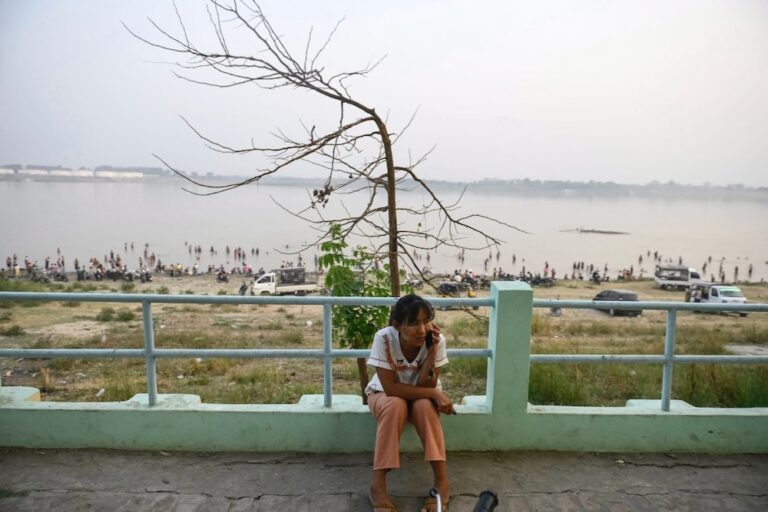(RSF/IFEX) – RSF and the Burma Media Association have called on the military junta’s censorship bureau to reverse a 1 September 2004 decision to ban the privately-owned twice-monthly magazine “Khit-Sann”, which covered current affairs. The magazine’s staff was recently told that the junta considered it to be too “pro-American”. “At the rate publications are being […]
(RSF/IFEX) – RSF and the Burma Media Association have called on the military junta’s censorship bureau to reverse a 1 September 2004 decision to ban the privately-owned twice-monthly magazine “Khit-Sann”, which covered current affairs. The magazine’s staff was recently told that the junta considered it to be too “pro-American”.
“At the rate publications are being closed and pressure is being put on journalists, the Burmese press will soon be limited to official propaganda outlets and a few privately-owned entertainment magazines,” the two organisations protested.
“Khit-Sann” had been published in Rangoon since August 2003. On 1 September, the magazine was told that it was banned until further notice. Major Aye Htun, the censorship bureau’s head, gave no explanation for the decision. The bureau is an offshoot of the Military Intelligence Service (MIS).
In August, the censors told publication director Kyaw Win that the magazine was viewed as too “pro-American”. In June, Kyaw Win had complained to the authorities about the use of his byline in propaganda articles published by an official newspaper. When the government did not respond, he tried to publish an article about it in “Khit-Sann”, but the censorship bureau banned it.
“Khit-Sann” was one of the very few publications to try to cover current affairs, as well as social, economic and philosophical issues. The magazine had a print run of 3,000 copies and was popular with young people and intellectuals.
Another privately-owned publication, “Khit-Thit”, recently received warnings from the censorship bureau. The cover of an issue examining celebrations of the 60th anniversary of the allied landing in Normandy was banned because its photo of American combat troops was deemed to be “too aggressive.”
The junta has also been harassing two well-known writers who are close to the opposition National League for Democracy (NLD). Ludu Sein Win and Dagon Tayar have been targeted by authorities since they gave interviews to the Burmese-language services of Radio Free Asia and Voice of America. The government press has openly criticised them and Ludu Sein Win’s telephone line was cut for two weeks.


